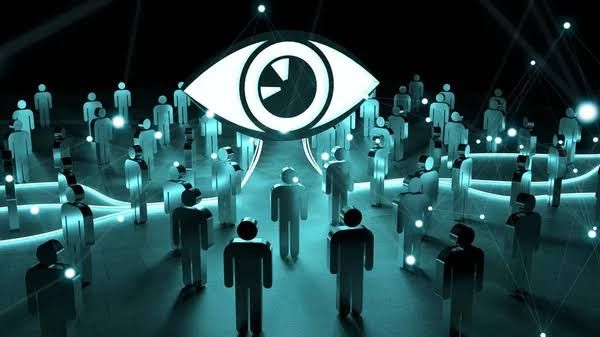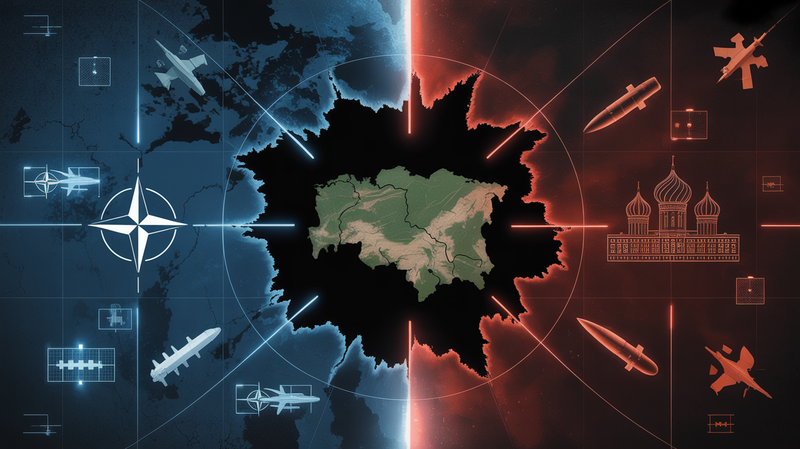Orwellian Pilots in Europe's Tiny Titan: Estonia Proposes Surveillance of Land and Sea Travelers
In line with the adoption of a European Union directive on air travelers, officials from Estonia's Ministry of Interior have suggested monitoring not just air passengers but also those traveling by sea and land, says Toomas Uibo, a member of the Riigikogu (Parliament of Estonia) economic affairs committee

In line with the adoption of a European Union directive on air travelers, officials from Estonia's Ministry of Interior have suggested monitoring not just air passengers but also those traveling by sea and land, says Toomas Uibo, a member of the Riigikogu (Parliament of Estonia) economic affairs committee from the Eesti 200 party.
"The European Union seeks to standardize requirements for member states on the collection and use of pre-travel information for air passengers. One of the aims of the draft law is to prevent possible terrorist acts and serious crimes and to combat illegal migration at the EU's external borders. The availability of pre-information about individuals moving as air passengers will become much easier for law enforcement agencies with the adoption of the new law. As a border state, Estonia has already been fulfilling these requirements and significant changes in our legislation are not forthcoming," Uibo explained to ERR.
However, Estonian officials have put forth a proposal to consider the possibility of implementing a similar human movement tracking system for land and sea transport, even within member states. "Put simply, this proposal would provide the opportunity to store data in the future about bus passengers traveling from Võhma to Viljandi, for example," Uibo added.
In his view, while it is crucial to enhance control over people entering the EU, individuals' rights to privacy should be preserved within the Union.
"We should not be building an Orwellian Big Brother society that is based on constant surveillance and tracking of our own people. I find the move towards such a control society to be an extremely dangerous trend," Uibo stated.
The conservative wing of the parliament supported this proposal, among other reasons, citing that many Muslims move within Europe. Uibo clarified, however, that the draft law does not regulate the collection of citizens' personal data based on religious belief and thus does not solve the conservatives' concern. Instead, it quite brutally infringes on the privacy rights of law-abiding Estonian people.
Uibo stated that the Eesti 200's position is that this would be an extremely disproportionate measure, significantly increasing the administrative burden for both businesses and departments. "Not to mention the invasion of citizens' privacy, which is ideologically unacceptable for the party."
The Ministry of Interior officials' proposals were first sent to Brussels with the draft law and then came to the Estonian Parliament's EU Affairs Committee table.
"Many countries did not support Estonia's proposal, and a compromise was agreed upon to deal with studies for now. If Estonia's proposal were to come into effect, it would mean a requirement for citizens to identify themselves on every bus, train, or boat trip. If you do not have an ID card with you, you cannot travel from Võhma to Viljandi in the way we are used to traveling by public transport today," Uibo concluded.
The committee has decided that the bill will not be advanced in its current form.
In the Footsteps of a Dystopia: How Decision-makers Utilize Orwellian Rhetoric as a Tactic to Shape Public Opinion
In the wake of Estonia's controversial surveillance proposal, a curious, albeit cunning, narrative is shaping up among the decision-makers. Akin to a suspenseful plot, the story is peppered with references to George Orwell's dystopian vision, not as a cautionary tale but rather as an almost enthusiastic prospect.
The invocation of 'Orwellian' terminology is not accidental. Decision-makers are fully aware of the chilling connotations this term holds for many - the specter of 'Big Brother,' the omnipresent state, the loss of privacy, and the suppression of individuality. These are potent images that have been seared into the public consciousness, thanks in large part to Orwell's literary legacy.
But why evoke such dystopian symbolism, especially when promoting a policy that seems to inch closer to this very nightmare? The answer lies in a subtly brilliant, if slightly insidious, piece of psychological maneuvering.
By framing the surveillance proposal as an 'Orwellian' necessity, decision-makers are achieving two key objectives. Firstly, they are diluting the potency of the Orwellian critique. By appropriating the term and using it to describe their own policies, they are attempting to redefine what 'Orwellian' means. It's no longer a dystopian nightmare but a bureaucratic necessity, a mundane fact of life in the digital age. This deliberate reframing serves to disarm critics who might, under normal circumstances, have deployed the 'Orwellian' critique against the surveillance proposal.
Secondly, by proactively owning the Orwellian label, decision-makers are engaging in a form of expectation management. They are preparing the public for a reality where increased surveillance is normalized and even expected. This psychological priming serves to lower resistance to such policies, facilitating their eventual implementation.
These tactics, while subtle, are alarmingly effective. However, they rely on a complacent public unwilling to question the true intentions behind the political rhetoric. The fact that decision-makers can even contemplate such a path speaks volumes about our collective understanding of Orwell's warnings.
Ultimately, the real Orwellian nightmare may not be the surveillance state itself but a society that has become so desensitized to its encroachment that it welcomes the arrival of 'Big Brother' not with outrage, but with a shrug.




